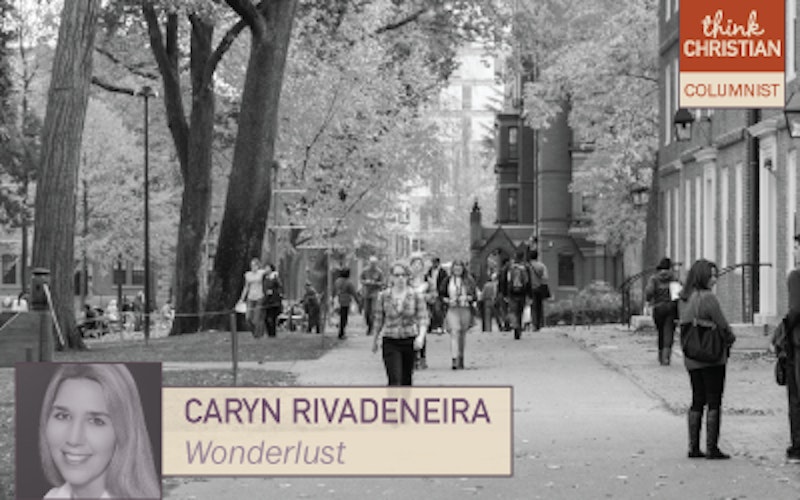
Culture At Large
Seeking justice and righteousness in campus sexual misconduct policies
When my son told me he wanted to play lacrosse, the first thought that popped in my head was, “Great. Lacrosse. The sport of rapists.”
Of course, I was thinking of the case in which three Duke University lacrosse players were accused of raping a woman at a party. As it turns out, the three men had been falsely accused. Criminal charges were dismissed and they were declared innocent of the horrific charges that had been hurled at them.
And yet, all these years later, when I heard the word lacrosse, I also think rape. Because of those accusations. I’m sure I’m not the only one who conveniently forgets the innocence of these men, who finds clinging to the scandal much more interesting.
I feel terrible about my poor - or perhaps selective - memory. Imagine how life must be for the falsely and famously accused. Perhaps it’s guilt over this that was behind my raised eyebrow when I read about a debate over Harvard University’s new sexual misconduct policy. A group of Harvard law professors expressed concern that the policy, which includes secretive, closed-door procedures, “violates basic principles of fairness and would do more harm than good.” To which Harvard sophomore Savannah Fritz told the New York Times, “It just seems like they’re defending those who are accused of sexual assault.” Fritz also called the professors’ concerns “a step backward.”
I understand the spirit of her words. Too many universities have turned a blind eye, or worse, toward victims of sexual violence, and certainly basic principles of fairness have been withheld from rape victims since the dawn of time. But to call defending the accused a “step backward” is troubling in its own right. Besides exhibiting an ignorance of the American judicial system, opposing the defense of a potential innocent is simply another instance of disregard for a person’s humanity.
Certainly we are seekers of justice, but always of righteousness as well.
Bear with me. I believe in the absolute power of No Means No and Yes Means Yes. I believe that no matter if a woman walks nude through a brothel, no matter if she “teases” or seduces or tempts, no matter how she dances or dresses, she never asks for or deserves rape. I believe in the need for harsh sentences for rapists. My blood boils when I hear of stories of cover-ups: on campuses, in churches, in police departments. I’m sickened by the number of rapists who walk freely, unrepentant, unpunished, unashamed and unafraid of any retribution. I don’t waver on what rape is, that it happens far more often than we like to think about or that it deserves swift and severe justice.
And yet. And yet. People do make false accusations. And lives can be destroyed in the wake of them. Just as lives can be destroyed by rape.
As much as we like to think it should be easier to hold the guilty accountable and to lock rapists away, as much as we may want to see accusations taken seriously and hush-ups and cover-ups done away with, to make that happen with a different kind of hush-up and cover-up is not right. Or just. Which is what I hope these Harvard Law professors are getting at in their concern about a secret process in which “genuine unfairness” can happen, without anyone ever knowing.
Being right and just are things Christians should always be getting at too. Certainly we are seekers of justice, but always of righteousness as well. Amos 5:24 says: “But let justice roll on like a river, righteousness like a never-failing stream.” These waters should roll on and not fail, for the accused and the accuser both.
Topics: Culture At Large, News & Politics, Justice, Education, North America